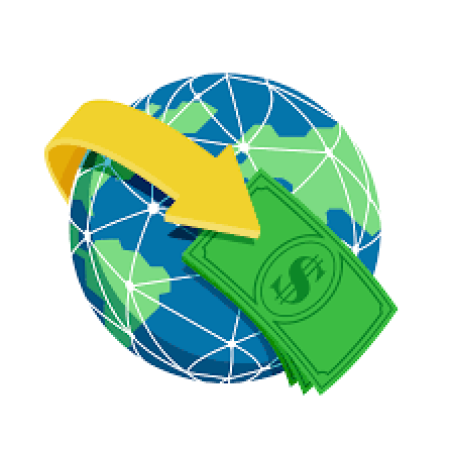Investment bank predicts Africa’s remittance market will reach $500bln by 2025

Remittances comprise a significant portion of African Gross Domestic Product (GDP), with the total value of remittances across the continent reaching nearly $100 billion in 2022 − $20 billion of which was intra-African flows.
Despite the importance of remittances to the African economy, the cost of sending money to the continent remains very high. The UN Sustainable Development Goals state that remittance fees should be less than 3% by 2030, but data from the World Bank suggests that at present the global average is twice this target, with the figure as high as 20% in some parts of Sub-Saharan Africa
According to Zitha, mobile money has emerged as a game-changer in tackling the challenge of high remittance costs in Africa. He expects increased mobile money interoperability, better financial literacy and streamlined legal frameworks to further drive down fees across the region.
Zitha said: “Looking ahead, the growth of remittances in Africa is expected to continue. Based on the CAGR of 12.1% between 2019 and 2022, the formal African remittance market, valued at $100 billion in 2022, could potentially reach $283 billion by 2035.
“The informal remittance market is estimated to be between 35% and 75% of the total value of formal channels, with Sub-Saharan Africa experiencing a higher proportion of informal transactions than the global average. As a result, the total remittance market in Africa could be worth $500bn by 2035.
“To fully capitalise on the opportunities in the continent’s remittances sector, stakeholders must collaborate to address the challenges and barriers that hinder growth and development. Reducing remittance costs should be a primary focus, which can be achieved by promoting competition, improving regulatory frameworks and investing in financial infrastructure. This will allow remittance providers to offer more affordable services, benefiting both senders and recipients and contributing to economic growth and development.
“Improving access to digital remittance services is another crucial aspect. While mobile money has made significant strides in Africa, there is still room for expansion. Governments and private sector stakeholders should invest in digital infrastructure, such as mobile networks and internet connectivity, to ensure that more people can access digital remittance services. Promoting financial literacy and education can also help individuals understand and trust digital remittance channels, encouraging adoption and usage.”
Zitha concluded: “The ability to harness remittance flows is particularly important at a time when the Sub-Saharan region is experiencing acute hard currency shortages. By addressing the challenges and barriers, and leveraging the opportunities presented by technology and innovation, Africa can harness the transformative power of remittances for sustainable development and economic growth.”
-Ends-
About DAI Magister
DAI Magister helps clients transform our world one transaction at a time, through essential guidance, creative insights and rigorous execution.
Backed by DAI, one of the largest global development firms, DAI Magister is a boutique investment bank offering full advisory services for transactions within the climate, deep tech, B2B SaaS, fintech and healthcare technology sectors.
From New York and London to Nairobi, we support CEOs and their investors by identifying and curating the right relationships to help grow, scale, and manage their business.
DAI Magister focuses on advising international technology and climate companies, developing and executing growth financings and strategic sell-side M&A. No matter the challenge or complexity of a transaction, DAI Magister’s exceptionally high success rate makes it a reality.
https://www.daimagister.com/
 Africas leading resource for digital financial services
Africas leading resource for digital financial services


comments